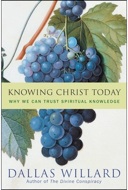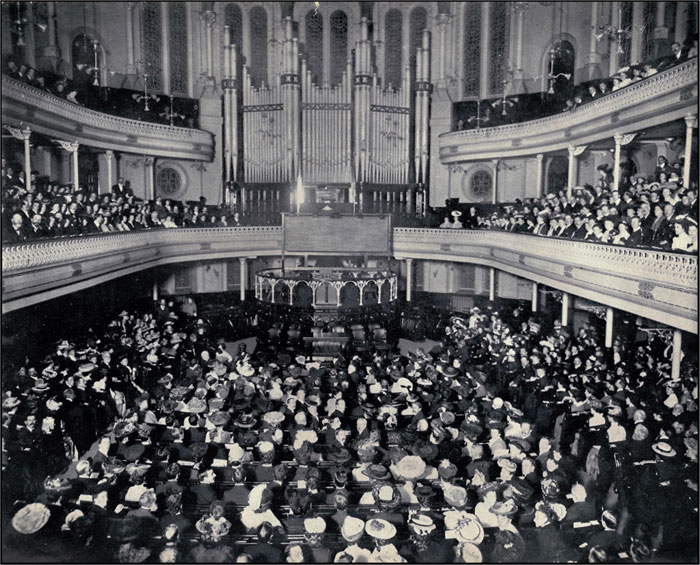Knowing Christ Today
 Do you think of religion as based on knowledge? Or do you find other words — profession, belief, commitment — more fitting to define its province?
Do you think of religion as based on knowledge? Or do you find other words — profession, belief, commitment — more fitting to define its province?
In Knowing Christ Today: Why We Can Trust Spiritual Knowledge, Dallas Willard makes a case for the legitimacy of the view that Christianity is knowledge-based. Swimming against the currents of intellectual fashion, he argues that the disappearance of moral knowledge as a subject taught by the knowledge institutions of our time has not occurred through any valid means. It has not been discredited or found to be false through research or definitive testing or rational dialogue. Instead, Willard suggests, rejection of the idea of “moral knowledge”
became an intellectual and academic lifestyle and spread across the social landscape as an authority in its own right. It branded all traditional and religious “knowledge” as mere illusion or superstition and all of the sources of such knowledge as unreliable or even delusory. The mood came, with no logical justification whatsoever, to govern the world of Western thought, and you will see it today in the popular works of anti-Christian and anti-religious writers. Over a period of time the status of “knowledge” came to be reserved, as a matter of definition, to the subject matters of mathematical and the “natural” sciences — and, questionably, to that of the “social” or “human” sciences as well.
How it happened, and why it leaves us with tragically incomplete answers to the most important worldview questions, is elaborated in Knowing Christ Today. As the title indicates, this book is not so much an argument against something as for something: a clarified understanding of what it means to know Christ in today’s world.
At once a biblical study, a logical argument, and a history of ideas, this makes for quite a challenging read. It seemed like the right time to read it because it addressed some things I thought about when I read The Language of God — the social bias toward scientific knowledge, its inadequacy to deal with certain kinds of questions, and, ultimately, how to educate people (most immediately, my children) in such a way as to truly “integrate faith and learning.” It’s not a new subject for me, but this book provides nourishing food for thought.
Willard points out that when it comes even to aggressive critics of Christianity, “whatever valid points they have to make will stand. We want nothing else. As Christ followers we want everything to be exactly what it is.” I so appreciate that gracious confidence, and I can see how it should characterize Christian educators. Surely when it comes to the factual evidence of history or science, we would “want everything to be exactly what it is.” It’s not by changing or avoiding the facts, but by applying a fuller view of reality than can be permitted by a secular view of knowledge, that we “think Christianly.”
If I had to choose one favorite thing about Dallas Willard, it would be the respect and honor with which he talks about Jesus, in contrast to the distortions and mischaracterizations that abound. Here, Willard transitions from some of today’s common answers to some of the main worldview questions, into the answers Jesus gives:
It will help us… if we suppose, for the moment, that he was quite intelligent and knew what he was talking about. That is not unreasonable in the light of his place in world history. His responses to these [worldview] questions emerge from the ancient learnings of the Jewish nation, and they have been developed through the ages, in various ways, by his followers. But they are fundamentally his, and without him they never would have attained the status in history that they have. Without him and his answers there would have been no “Western civilization” as we know it. So let us assume that he actually knew what he was talking about…
I think this book is a must-read for Christians, but it’s one that requires a prepared mind and heart. Following the argument takes a lot of concentration, and Willard makes no attempt to simplify complex issues. But a more worthwhile equipping for today’s Christians is hard to imagine.


